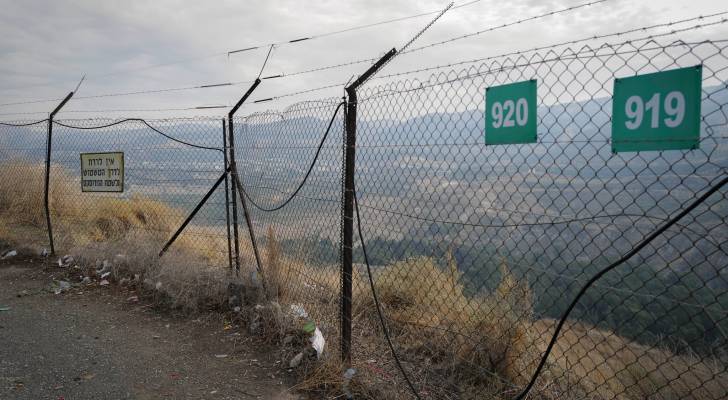Analysis: Jordan pushes back against ‘Israeli’ border barrier plans
When Jordan’s Foreign Minister Ayman Safadi warned in August 2024 that “Israel’s policies are the biggest threat to regional security,” his words were pointed—and prophetic.
Fast forward to May 18, 2025: Israeli Occupation announces plans to construct a USD 1.4 billion high-tech barrier along its 425-kilometer border with Jordan. Framed as a measure to stop weapons smuggling, the project has instead triggered alarm and condemnation in Amman, where officials see it as political posturing rather than genuine security policy.
Safadi had already accused radical 'Israeli' officials of spreading disinformation about Jordan and called their plans propaganda that could not mask the reality of ongoing violations of international law and Palestinian rights. That message has only grown more relevant.
A fence of contention
The plan, approved by 'Israel’s' security cabinet and led by Defense Minister Israel Katz, involves building a sophisticated barrier stretching from the occupied Golan Heights in the north to the occupied city of Eilat in the south. Construction is set to begin in June 2025 and will take approximately three years.
Replacing aging chain-link and barbed-wire fences, the new barrier is expected to include advanced surveillance systems, mobile military units, and fortified command centers. Katz has linked the move to an “eastern terror front,” accusing Iran of arming West Bank factions through Jordan and framing the project as a way to “reinforce our hold on the Jordan Valley and ensure Israel’s sovereignty.”
Jordan responds: "Walls don't bring security"
Jordan has firmly pushed back. Government sources told Roya News that “walls and fences do not bring security nor stability,” emphasizing instead the need for peace and Palestinian self-determination.
Despite the rhetoric from Tel Aviv, Jordan’s border remains heavily secured—with thousands of troops deployed and intelligence-sharing mechanisms already in place under the 1994 peace treaty. The Kingdom has repeatedly asserted its sovereignty and dedication to regional stability through security and diplomatic channels alike.
Safadi’s earlier statement continues to frame Jordan’s stance: the region's real threat is not along its border, but in the deepening occupation of the West Bank and the erosion of prospects for a two-state solution.
Political motives behind a security narrative
Speaking to Roya News, political analyst Hamadeh Faraneh rejected 'Israel’s' claims, calling the barrier a transparent political maneuver by the far-right government.
“They say it’s about security, but this is clearly about blocking the path to a Palestinian state and expanding settlement ambitions,” Faraneh said. “It sends a loud message about who is being targeted—and why.”
Holding the Line
As construction begins on the new barrier, Jordan continues to assert that its commitment to border security and peace is unwavering. While ‘Israel’ highlights alleged smuggling as justification, the evidence shows Jordan has taken decisive action—both diplomatically and militarily—to uphold its end of the peace treaty.
Government officials reaffirmed to Roya News that “Jordan protects all its borders with utmost efficiency and capability.”
In the eyes of Amman, the real danger lies not in illicit arms but in the deliberate undermining of peace efforts. As Safadi’s warning rings louder, Jordan stands firm—resisting both the wall and the narrative behind it.




